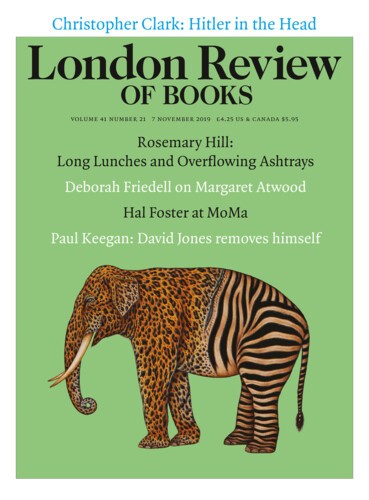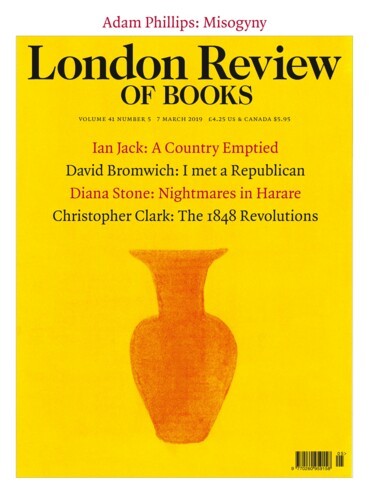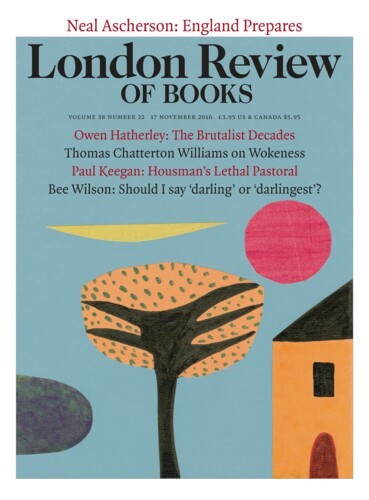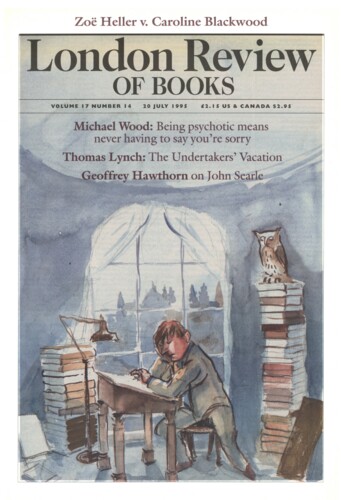Mulishness: David Jones removes himself
Paul Keegan, 7 November 2019
Jones’s dedication to what he called ‘the contactual’ derived from this maternal Pool of London world, so vivid and particular. The yielding of wood and sail to steel and steam informed his sense of personal identity as a loyalty to lost causes (‘almost always the right’ ones), giving its character to his paradoxical modernism. When he read The Waste Land in the mid-1920s, the line ‘C.i.f. London: documents at sight’ was as a stone dropped down a well, echoing with riverside workshops, bills of lading, sight-drafts, brokerage, bonded goods and harbour dues. The odd relatives and elders who came to tea in Brockley were salts, nautical types plucked from the Victorian treasure chest and date-stamped (Dilworth remarks that they were both Dickensian and Dickensians). Their idioms prepared the boy’s ear for idiosyncrasy: the rooming-house world of his later years, stocked with splintery solitaries, was familiar from childhood.





